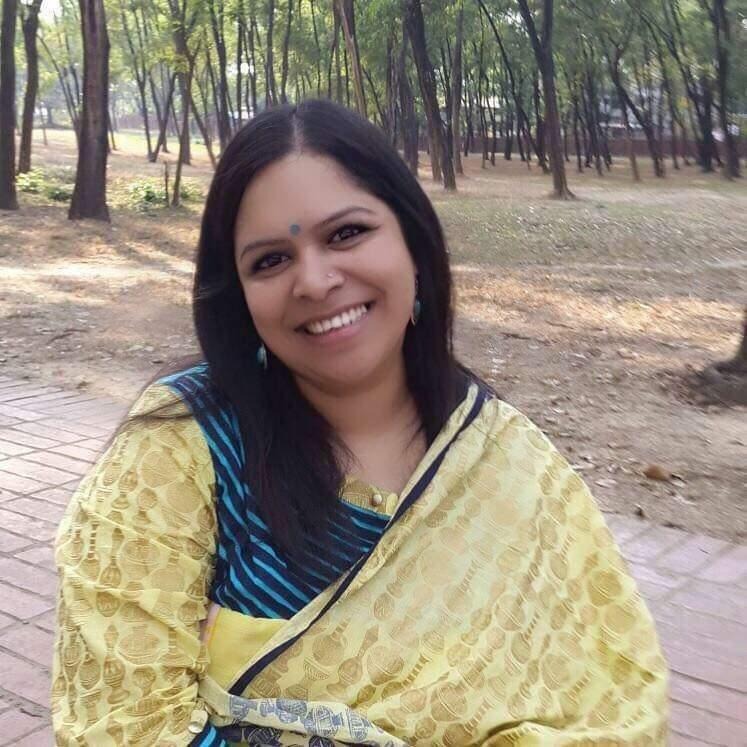TrialWatch Will Monitor Bangladeshi Investigative Journalist’s Case
This statement can be attributed to the Clooney Foundation for Justice. For further inquiries, please contact [email protected]

Despite the police asking to drop the case, 43-year-old award winning investigative journalist Rozina Islam continues to face criminal charges that carry the death penalty amid a broad and increasingly violent crackdown on press freedom in Bangladesh. The Clooney Foundation for Justice’s TrialWatch initiative announced today that it will monitor the proceedings against Islam, which arise from her reporting on the government’s management of the COVID-19 pandemic.
TrialWatch, which monitors criminal trials globally against those who are most vulnerable, including journalists, and advocates for the rights of the unfairly imprisoned, has been observing pretrial hearings against Islam since September 2021. TrialWatch will continue to monitor the case following an order from the court for a new investigation into Islam’s journalistic activities after the initial police report said that “no evidence was found against Rozina”. After multiple delays, the police are due to present their reinvestigation report to the court on June 25.
Islam is a senior reporter at the independent outlet Prothom Alo. In May 2021, during a visit to the Ministry of Health as part of her investigation into the government’s management of COVID-19, she was arrested after the Ministry accused her of taking pictures of confidential documents. Islam denied these accusations. She spent a week in jail before being released on bail. Islam alleges that she was subjected to physical harassment during her initial detention at the Health Ministry.
As documented by TrialWatch monitoring, in October 2022, soon before her trial was set to take place, the police presented the court with a report recommending that Islam’s case not go forward due to a lack of evidence. In January 2023, the Ministry of Health lodged a written objection to the police findings, prompting the court to order a reinvestigation. On April 6, when the police were due to present the reinvestigation report, they requested additional time and the court postponed the hearing to May 21. On May 21, the court postponed the hearing to June 25, again because the police were not ready to present the report.
As a result of the ongoing proceedings, which have now lasted more than two years, Islam has been deprived of her press accreditation card and her passport: in numerous hearings monitored by TrialWatch, the court has denied Islam’s requests for these to be returned. At the hearing on May 21, for example, Islam’s lawyers applied for her passport both so that she could seek medical treatment abroad and so that she could accompany her husband for a planned surgery at a foreign hospital. The court rejected the application.
Islam is alleged to have violated the Official Secrets Act (OSA)—specifically, Section 3, which prohibits photographing certain places or objects within them; and Section 5, which punishes the use of such information in a “manner prejudicial to the safety of the State.” The OSA is a colonial era law that was recently criticized by several UN experts as conflicting with international human rights standards. Islam is also charged under two provisions of the Bangladesh Penal Code: Articles 379 (theft) and 411 (dishonestly receiving stolen property).
Bangladesh is party to the International Covenant on Political and Civil Rights, which requires it to respect the right to a fair trial and the right to freedom of expression and the press. Nonetheless, the country is rated 162of 180 in the Reporters Without Borders 2022 World Press Freedom Index. At least 80 journalists in Bangladesh were reportedly attacked, injured, or killed while doing their jobs in 2021. Those whose reporting is critical of the government are particularly at risk. Two journalists at Prothom Alo, where Islam works, were recently arrested in connection with an article about rising food prices. TrialWatch is currently monitoring proceedings against two additional journalists who are facing charges under cybercrime laws for comments about the government: Shafiqul Kajol and Shahidul Alam. We are also monitoring the use of national security and cybercrime laws against journalists across the region, including in India, Indonesia and Malaysia.
TrialWatch will release a report co-authored by Covington & Burling LLP on Rozina Islam’s case in the coming months.